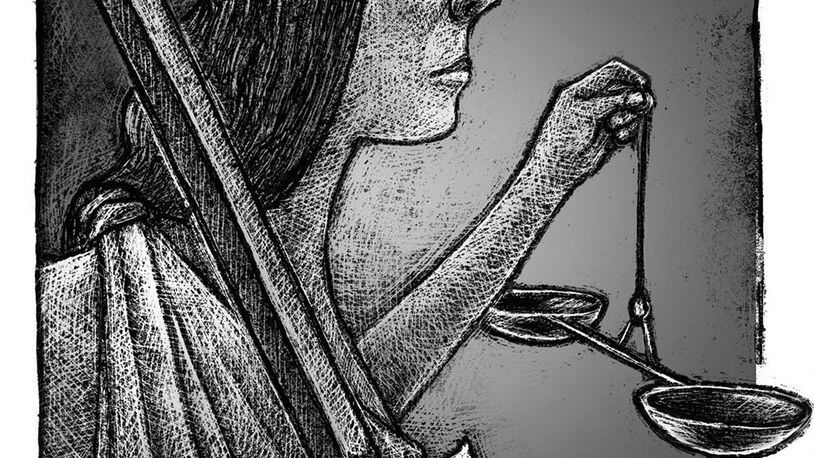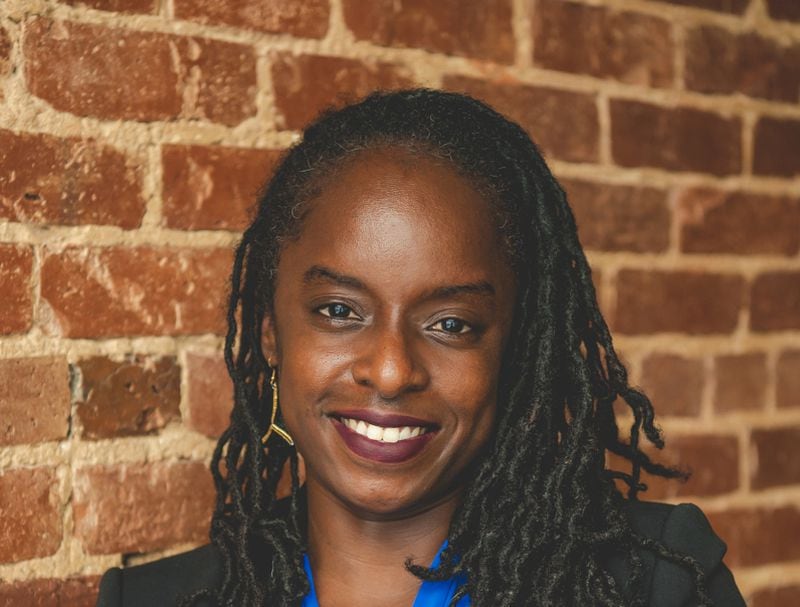AJC Op-Ed: Georgia must do right by public defenders, people they serve

By Atteeyah Hollie
Anniversary of Supreme Court ruling requiring lawyers be provided for poor defendants lets us reflect on progress, ongoing needs. Read on in the Atlanta Journal-Constitution here: https://www.ajc.com/opinion/opinion-georgia-must-do-right-by-public-defenders-people-they-serve/HYVPAUZ2GVCYNCNSFIKOHWYN2U/
In 2002, fresh out of college, I moved to Atlanta for an internship with the Southern Center for Human Rights, a nonprofit law firm that represents people ensnared at all stages of the criminal legal system across Georgia and Alabama.
At the time, Georgia did not have a statewide public defender system; rather, each of our 159 counties devised their own system for providing lawyers to accused people unable to hire their own. Within the first few weeks of my internship, I was sent to a courtroom in rural middle Georgia to see how the judge treated accused people who could not afford lawyers. I wasn’t yet a lawyer, but I didn’t need advanced degrees to know that what was happening in that courtroom was unconstitutional and entirely sidestepped the nearly 40-year-old U.S. Supreme Court decision, “Gideon vs. Wainwright.”

To avoid a 70th anniversary of Gideon that calls our commitment to our constitution into question, we must fully fund the offices that are the sole defenders of the Sixth Amendment right to counsel in our state.
Gideon – which celebrated its 60th anniversary on March 18 — sought to equalize the criminal legal system by ensuring that people who could not afford a lawyer would still receive effective defense counsel under the Sixth Amendment. The decision gave states discretion in how they would effectuate this right. While some states created public defender offices in response to Gideon, others chose cheaper, less effective means that prioritized budgets over lives. Unfortunately, Georgia chose the latter approach.
The impacts of this choice were on full display when I observed court as an intern. The judge had a blanket rule denying lawyers to people who posted bond to get out of jail. Around the same time, The Atlanta Journal-Constitution captured disturbing scenes across Georgia confirming that Gideonwas a mere afterthought. Many appointed lawyers lacked criminal defense experience and were paid so little that they were effectively dissuaded from zealously defending people living in poverty. In East Georgia, Atlanta Journal-Constitution reporter Bill Rankin watched as a court-appointed lawyer advocated that his indigent client receive a longer sentence than the one the judge intended to impose. In a South Georgia courtroom, Rankin watched a judge suggest that an accused woman who dressed nicely for court pawn her necklace to pay for a lawyer.
Community organizations, impacted people, faith leaders, nonprofits and others pushed for the creation of a statewide public defender system through organizing, litigation, blue ribbon commissions, and other pressure points. In 2003, 40 years after Gideon, Georgia’s legislature passed the historic Indigent Defense Act, that brought public defender offices, staffed with full-time lawyers for accused people without means, to counties across Georgia.
This year marks the 20th anniversary of our groundbreaking Indigent Defense Act. The Act has fundamentally changed the quality of representation provided to people who cannot afford to hire counsel. Full-time, dedicated public defenders are now fixtures in courtrooms where they were previously absent. Their work and presence couldn’t come at a better time, as Georgia has historically been — and sadly remains — one of the world’s incarceration capitals.
But the heroic work of Georgia’s public defenders has not come without struggle, and in some ways, history is repeating. Due to a toxic combination of understaffing and underfunding in our indigent defense system, my Southern Center colleagues and I have had to sue the state four times in the last 15 years.
We sued because of: the threatened closure of a metro Atlanta conflict defender office tasked with representing people whom the public defender could not; because the State allowed people to languish in prison without constitutionally mandated appellate lawyers who could challenge race discrimination in jury selection; because the state was unlawfully withholding evidence favorable to the defense; because people in North Georgia were being denied conflict-free counsel like those in the metro Atlanta area; and because an understaffed South Georgia public defender office routinely missed juvenile court, forcing accused children to represent themselves against the prosecution.
Each of these lawsuits ended in settlements designed to breathe life back into Gideon for accused people in Georgia’s rural and urban communities.
But lawsuits can only go so far.
Understaffing and underfunding continue to plague the important work of Georgia’s public defenders. Just this past summer, over 600 Georgians, many in jail, had no lawyer to represent them because the state agency tasked with assigning conflict-free counsel could not find lawyers to defend them. Of the 113 people waiting for that legal representation in Fulton County alone, 29 were in jail without a lawyer for over a year. Meanwhile, jobs were lost, families separated and homes were in danger. For some, their wait for lawyers to make real on their Sixth Amendment right to counsel continues to this day.
Georgia has come a long way since judges were ordering people experiencing poverty to pawn jewelry to hire a lawyer. As we recognize Gideon and the creation of our statewide public defender system, we must also recognize that a system without full investment will harm our public defenders, the many people the state decides to prosecute and the communities that will continue to shoulder bloated jail budgets.
To avoid a 70th anniversary of Gideon that calls our commitment to our constitution into question, we must fully fund the offices that are the sole defenders of the Sixth Amendment right to counsel in our state. In so doing, we will curb wealth-based injustices that lock people away in jail cells, at great costs to them, their families and our already-stretched budgets, for no other reason than their poverty.